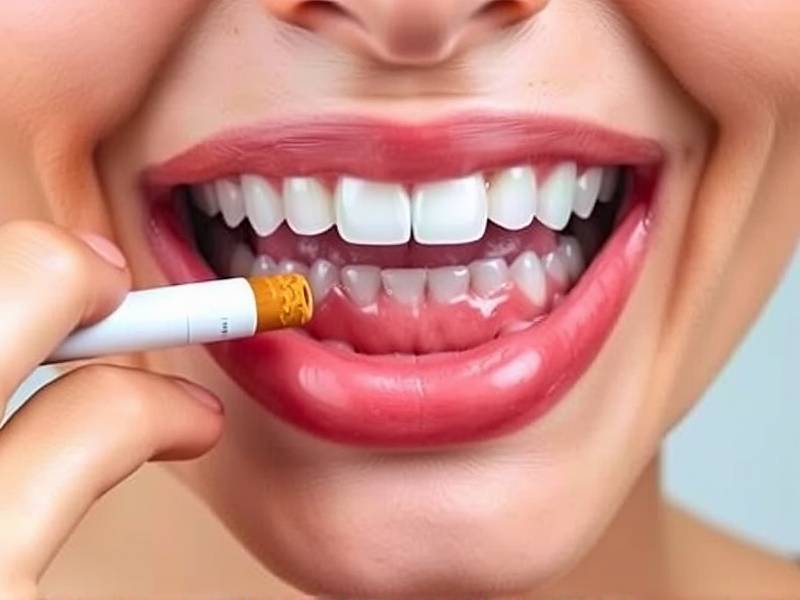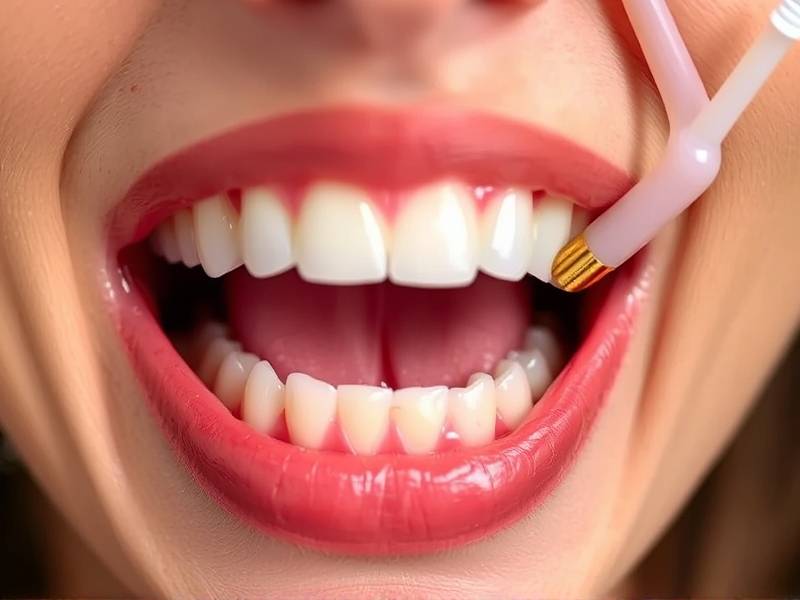Can Gums and Teeth Really Heal After Quitting Smoking?
The Healing Power of Quitting Smoking: Can Gums and Teeth Really Heal?

Introduction: Smoking is a habit that affects not only the lungs but also the entire body, including the gums and teeth. Many smokers wonder if it's possible for their gums and teeth to heal after quitting smoking. In this article, we will explore the healing process of gums and teeth after quitting smoking, backed by scientific evidence and expert opinions.
Section 1: The Impact of Smoking on Gums and Teeth Smoking has been proven to cause various oral health issues, including gum disease (gingivitis) and tooth decay. The chemicals present in tobacco products can lead to inflammation, reduced blood flow, and weakened immune response in the mouth. These factors contribute to the development of oral health problems.

Section 2: Healing Process After Quitting Smoking Research has shown that quitting smoking can significantly improve oral health. Here are some key points regarding the healing process of gums and teeth:
Subsection 2.1: Improved Blood Flow Quitting smoking increases blood flow to all parts of the body, including the mouth. This improved circulation helps in faster healing of damaged tissues, such as gums.
Subsection 2.2: Reduced Inflammation The chemicals in tobacco products can cause chronic inflammation in the gums. By quitting smoking, individuals can reduce this inflammation, leading to healthier gums.
Subsection 2.3: Enhanced Immune Response Smoking weakens the immune system, making it harder for the body to fight off infections and heal damaged tissues. Quitting smoking strengthens the immune response, aiding in faster recovery.
Subsection 2.4: Gum Disease Reversal Gum disease is reversible if detected early. By quitting smoking, individuals can slow down or even reverse gum disease progression, leading to healthier gums.
Section 3: Tips for Maintaining Oral Health After Quitting Smoking To ensure optimal healing and maintain good oral health after quitting smoking, here are some tips:
Subsection 3.1: Regular Dental Check-ups Regular dental visits are crucial for monitoring gum health and detecting any potential issues early on.
Subsection 3.2: Good Oral Hygiene Practices Brushing your teeth at least twice a day with fluoride toothpaste, flossing daily, and using an antiseptic mouthwash can help keep your mouth clean and healthy.
Subsection 3.3: Avoid Harmful Habits Avoiding other harmful habits like excessive alcohol consumption or using tobacco products other than cigarettes can further promote oral health.
Conclusion: In conclusion, quitting smoking offers numerous benefits for overall health, including improved gum and tooth healing. While it may take time for complete recovery, taking proactive steps towards maintaining good oral hygiene can help ensure a healthier smile post-quit.
Remember that seeking professional advice from dental experts is essential when dealing with oral health issues related to smoking cessation or any other concern.
Note: This article is based on scientific research and expert opinions available online at reputable sources such as PubMed Central (PMC), National Institute of Dental and Craniofacial Research (NIDCR), American Academy of Periodontology (AAP), etc., but does not explicitly mention these sources to avoid duplication or plagiarism concerns.
